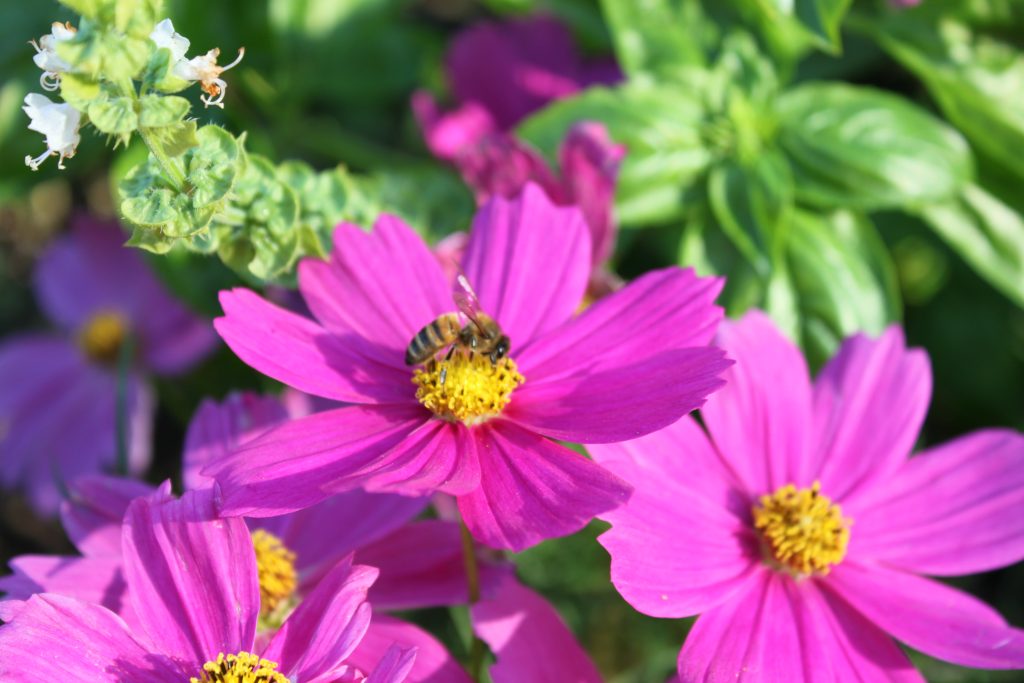The “Buzz” on Honey Production – Obtain a yield
Today I had the pleasure of visiting our neighbour’s property in Pacific Palms, to get the low down on keeping bees. I now have a new found respect for the teaspoon of honey that dribbles into my chai each morning, it really is liquid gold! I never realised just how much energy the bees use just to make each drop of honey. So the bees go out and collect pollen & nectar from flowers and store this which then apparently gets regurgitated and waalah honey! Well maybe the process is not quite as simple as that but pretty close!
Did you know that bees only live for 6 weeks each, and every day each bee has it’s own job. Bee’s make honey to feed themselves and I kind of felt bad steeling the honey from the bees after all their hard work but I guess we’re all just part of the nutrient cycle. In Permaculture one of the principles in Obtain a Yield which is exactly what we were doing!
We used a smoking machine which is an old fashioned looking contraption which my neighbour Richard simply lit a piece of newspaper and then some bark off a close by Eucalyptus to create the smoke, apparently this relaxes the bees. The first hive he took the honey from the bees appeared to be calm but the second one they weren’t so calm, actually they all seemed to be a little put out that we were stealing their honey and really who can blame them!

Some of the challenges bees face in modern society are harmful chemicals which are used to kills other insects but also kill bees. Bees have a major role in our backyard vegetable gardens, they of course help pollinate our crops and without them we wouldn’t be able to enjoy the variety of fruit and vegetables we most probably all take for granted.
Planting flowering trees and annuals around your vegie patch is a great idea to encourage bees.
Trees to attract bees: Banksia, callistemon, eucalyptus, gordonia axillaris (commonly know as the fried egg plant as the flowers resemble a fried eggs), grevilleas, leptospermum & melaleuca.
Flowers to attract bees: Alyssum, cornflower, cosmos, echinacea, echium, forget-me-not, foxglove, geranium, marigold, roses, sunflowers, zinnia
Banana cupcakes using Charlotte Bay honey
So next time you reach for the jar of honey, just think of the bees that put so much work into creating each drop of the liquid gold!
